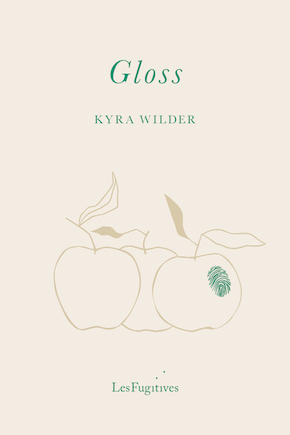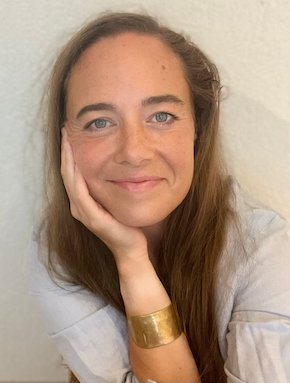The heron and the snake
by Kyra Wilder
THERE WAS ONE DAY where we took a drive in Lee’s van, piling all in the back. We were all the same knees and elbows, like one of us had six instead of only two apiece. We were close with each other then like that.
Then we didn’t have anywhere to go so Lee just drove us, out through the stubble-grass hills tangled up like sisters and quiet like little girls. We looked out the window, watching each other, watching nothing much. The days were washing over us and making us better and cleaning us out and we could let them. We could let the days do that.
Lee said that we were doing well and praised us. And when he praised us, we could let ourselves do that thing where we came a bit alive and snuggled and got close to one another in the back of the van. Because it was only us and Lee and all those golden apples growing at the farm and there was no one else to look.
When we came to his house, to his garden, hidden in the dip between two hills, Lee told us to be relieved. You’re home, he told us. This place is meant for you. He said that we should hang our outside selves up beside the door like out-of-season coats. He was right and we were so relieved. Relieved not to be anything. To be sloughed off. Not being anything there in his garden, being nothing, we could eat.
Driving slowly down a wooded road, we saw a great blue heron walking in the grass. We stopped to watch him because we had the time. Lee turned off the engine and we leaned back in our seats and chewed our nails, right down and red just like we liked to, until Lee told us all to stop. And we did stop but we left our fingers in our mouths, barely breathing, just watching it, the big old lumpy bird, the way it walked.
Suddenly the heron snapped his head into the grass and came back up with a thick black snake scissored in his beak. He rocked back and forth and we watched breathless, while the ragged heron began to squeeze the life out of the snake. We sat unmoving, frozen behind the dirty windows of Lee’s van until the snake hung heavy, slumped in the bird’s beak.
Now it moved so slowly. Not as if it were in pain, but as if it had forgotten only just that quickly how to be alive. It’s just giving up! we said, biting each other’s fingers and sucking in our cheeks. The bird’s beak bore deep into the muscled body of the snake, almost splitting it in two yet still, the snake just hung there. We wondered if maybe it was dead.
It was only as the last bit of the snake was swallowed that it began to fight. We watched the bird lose its balance as the snake inside it thrashed and we squeezed each other’s hands and thought maybe the snake could still somehow get out.”
Suddenly, the snake rolled over, tearing its skin on the heron’s jaw and we grinned and thought that maybe there would be a fight. We pinched the insides of each other’s arms and thought of it, the way the snake might wrench itself free. And we licked our lips and thought too of the damage it might do to its own self trying to escape. But we were disappointed, the snake only flipped itself over so it could better slip its tail down the side of the bird’s neck. And we gasped when we saw how it was almost a caress. Then the bird threw back its head and gulped the snake down clumsily. And then it was suddenly so intimate between them that we thought maybe we should look away.
We didn’t though. We couldn’t. We kept our eyes on the two of them together and we flicked our own tongues against our lips. It was only as the last bit of the snake was swallowed that it began to fight. We watched the bird lose its balance as the snake inside it thrashed and we squeezed each other’s hands and thought maybe the snake could still somehow get out. After an awful moment though, there was only stillness and the blue heron hefted itself up heavily into the air.
We sat inert, beside ourselves, horrified and utterly bereft until Lee pushed back from the steering wheel and laughed. And then we wondered if he’d known before about the bird, if the bird had been the point. And we snapped to attention, trying to recall the details just exactly, thinking this might be a lesson or a test. We reached for each other down beneath the seats where Lee couldn’t see us and we wished that we were back at the farm where we were safe.
Before coming to Lee’s farm, we had tried to bring our bodies back to life by means of our own invention. By starving them, by cutting them, by digging into them and carving them out. Then we had come to Golden Apples and we had tried to listen to Lee because if we did what he told us, if we polished the apples and if we tended the trees, he said that we would live. And we had lived. But we wondered, craning our necks to see the disappearing heron, when had the snake been dead? It seemed colossally important that we should know.
When had it been too late for it to save itself? From the beginning? From the moment the bird snapped his head into the grass? We wondered if that had been why Lee had brought us. To see how it didn’t matter if the snake wriggled, if it tried, or if it didn’t try, to escape. Underneath the seats, we braided our fingers anxiously together. Lee, Eleni said, let’s please go back.
from Gloss (Les Fugutives, £12.99)
—

Kyra Wilder grew up in the Pacific Northwest and went on to study at the Culinary Institute of America. She cooked in restaurants in California and New York and was the pasta-maker in Michael Tusk’s now Michelin-starred restaurant Quince, before receiving her BA and MA in English Literature from San Francisco State University. She continued working in restaurants before moving to Switzerland with her young family, where she wrote her critically acclaimed first novel Little Bandaged Days (Picador, 2020). She has had poetry and articles published in The Paris Review and McSweeney’s. Gloss, her second novel, which transposes the Greek myth of the Hesperides to Marin County at the turn of the millennium, is published by Les Fugitives.
Read more
@LesFugitives

